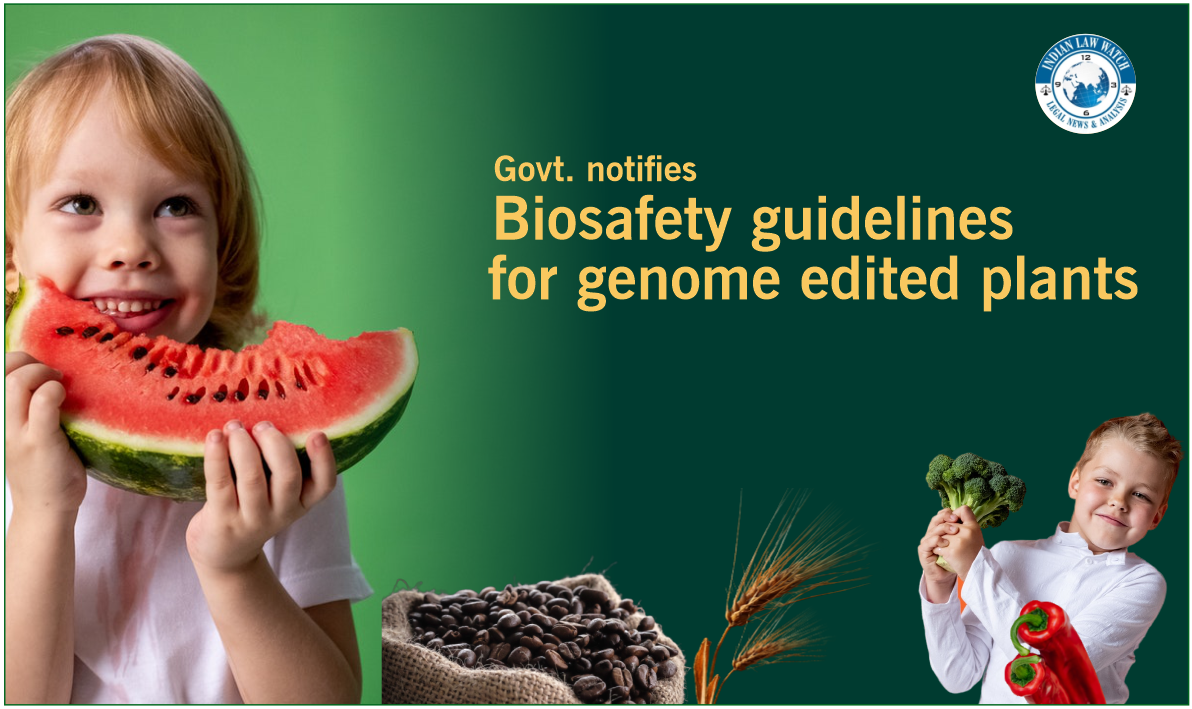
Govt. notified guidelines for genome edited plants
Scientists say that genome-edited plants are different from genetically-modified organisms (GMO) technology. Genome editing is a group of technologies that gives scientists the ability to change an organism’s DNA.
The department of biotechnology on Tuesday notified the guidelines for the safety assessment of genome edited plants, which is expected to accelerate genetic improvement of crops in the country.
The guidelines provide a road map for the sustainable use of genome editing technologies and applicable to public and private sector research institutions engaged in research and development and handling of genome edited plants.
The environment ministry, in a notification in March 2022, had exempted certain types of genome-edited crops from the stringent biosafety regulations applicable to genetically-modified (GM) crops. The ministry had exempted site directed nuclease (SDN) 1 and 2 genomes from rules 7-11 of the Environment Protection Act, thus allowing to avoid a long process for approval of GM crops through the Genetic Engineering Appraisal Committee (GEAC).
According to KC Bansal, former director, National Bureau of Plant Genetics Resources, the conventional breeding technique takes 8–10 years for development of new agricultural crop varieties, while through genome-editing, the new varieties could be developed in two to three years.
Scientists say that genome-edited plants are different from genetically-modified organisms (GMO) technology. Genome editing is a group of technologies that gives scientists the ability to change an organism’s DNA.
“These guidelines are expected to bring transformational change in product development and commercialisation and would contribute towards increasing farmer’s income,” Rajesh S Gokhale, secretary, ministry of science and technology, said.
The guidelines define various categories of genome edited plants and determine regulatory requirements for appropriate categories and provide the regulatory framework and scientific guidance on data requirement in context of development of these crops.
According to Bhagirath Choudhary, founder and director, South Asia Biotechnology Centre, Jodhpur told FE that the guideline aligns and harmonizes India’s regulatory framework on genome editing with other mega food producing countries from Latin America, North America, Africa and Asian countries. Choudhary said this decision will spur product development and commercialization of genome edited plants and accelerate agriculture and good trade of such products.
Recently, on the gene editing technology, Johannes D Rossouw, head, vegetables (research and development), Bayer Crop Science, had said, “We can get that to a point where seed companies, including us, have the ability to use that in their breeding programmes, to again accelerate the products we develop to improve the profitability for growers.”
Last year, a group of eminent agriculture scientists wrote to Prime Minister Narendra Modi asking for easing of release of genome-editing technology for the sector.
In the case of GM technology, applicants have to apply to the GEAC, which follows time-consuming testing methods along with states. Till now, cotton is the only GM crop that has been approved for commercial cultivation in the country.
Source: Financial Express






